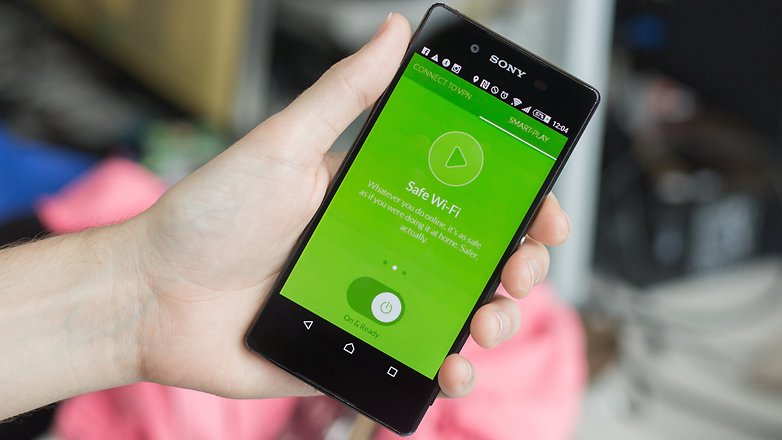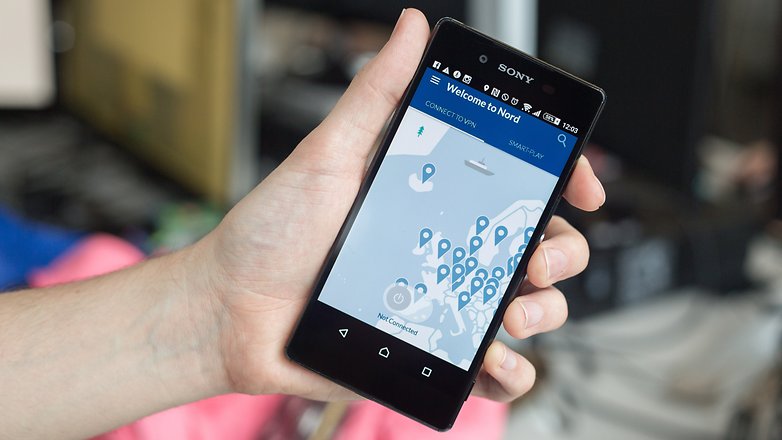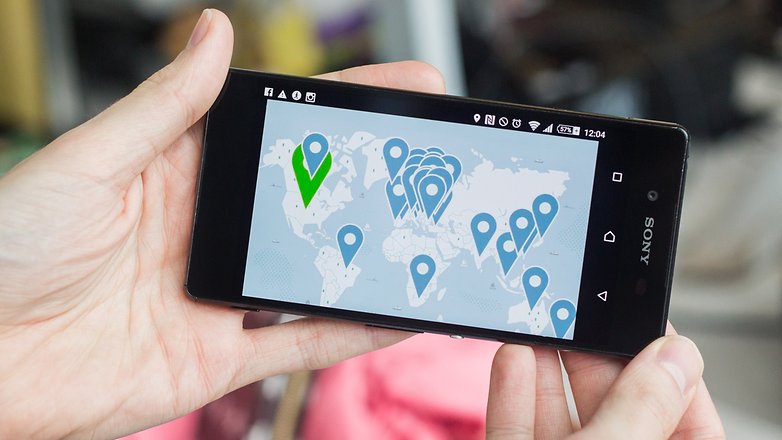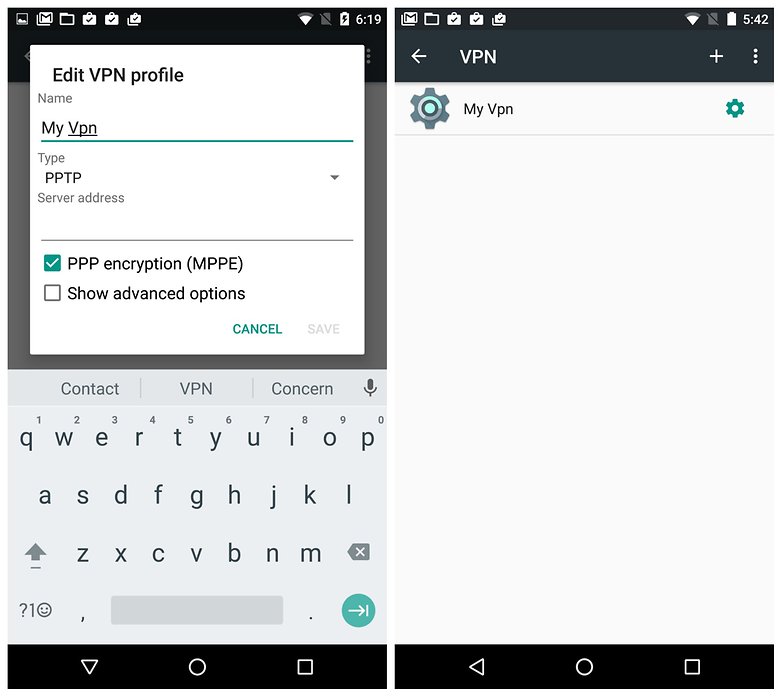If you worry about online safety and haven’t thought about getting a VPN, it might be to time to consider it. VPN subscription prices are dropping and VPN apps are getting better all the time, so, in this article, we're going to discuss what a VPN is, how it works and why should you get one.
If you’ve ever tried to access a coffee shop Wi-Fi network, only to be warned that the connection is not secure, then you should think about a VPN: you never know who's watching.
Regardless of how concerned you are about online privacy, there is one key takeaway: your activity online is logged in many places, by many services, and it will be less visible if you use a VPN.
The second reason you might want a VPN is to access video streaming websites that you otherwise couldn’t. Say you’re on holiday in Bangkok, but want to continue watching that TV series you were enjoying on Netflix back home. Typically you wouldn’t be able to access this in a different country, but a VPN app would allow you to do that.
A VPN can also be used to avoid price discrimination, by masking your location and making it more difficult to track you.
However, while using a VPN is perfectly legal, using it for certain purposes is not. The same applies to use of the internet in general.

We are often asked whether it is legal to stream region-locked movies and TV shows in other countries. This is something that is in a state of flux, but the (somewhat disappointing) current answer is, not really.
I reached out to Netflix regarding this matter, and a member of its support team told me: "Customers that use services to change the IP location of their computers to watch content available in other regions [are acting] against our terms of use."
Hulu's Terms page explicitly states: "Using technologies to access the Content from territories where Hulu does not have rights or does not offer services is prohibited. Your subscription is not accessible through any devices from outside the United States."
Other streaming services may not enforce this so stringently and these laws are being questioned because they don't allow for certain exceptional circumstances, such as when people are traveling. You should always check a service's terms and conditions before trying to access it with a VPN.
Also, some suggest they can make you completely anonymous: this is almost always untrue. You can certainly gain a more private connection but complete anonymity is really hard to achieve online.

As always, the steps in the settings and the names for each section might vary depending on your Android device. On stock Android, the procedure is as follows:


What is a VPN?
VPN stands for virtual private network and is a service that provides a secure internet connection by using private networks in remote locations. Using a VPN service can make it seem as if you are accessing the internet from an entirely different location, helping you to maintain security and privacy while online, among other things.What is a VPN app?
A VPN app brings the aforementioned service to your smartphone. Simply install a VPN app and select a location and your online activity will appear to be taking place in that region.Why would I want a VPN?
First and foremost, for increased privacy. VPNs can help control the information that companies or the government attempt to gather from you. It can also encrypt data so that your online activity isn't visible.If you’ve ever tried to access a coffee shop Wi-Fi network, only to be warned that the connection is not secure, then you should think about a VPN: you never know who's watching.

Regardless of how concerned you are about online privacy, there is one key takeaway: your activity online is logged in many places, by many services, and it will be less visible if you use a VPN.
The second reason you might want a VPN is to access video streaming websites that you otherwise couldn’t. Say you’re on holiday in Bangkok, but want to continue watching that TV series you were enjoying on Netflix back home. Typically you wouldn’t be able to access this in a different country, but a VPN app would allow you to do that.
A VPN can also be used to avoid price discrimination, by masking your location and making it more difficult to track you.
Is using a VPN illegal?
In some countries, such as China, North Korea and Iran, it is illegal to use a VPN, but in most western territories (including the US and UK) it’s perfectly legal. VPNs are often used by businesses, schools and universities to give people access to their resources when they're not on the premises.However, while using a VPN is perfectly legal, using it for certain purposes is not. The same applies to use of the internet in general.

We are often asked whether it is legal to stream region-locked movies and TV shows in other countries. This is something that is in a state of flux, but the (somewhat disappointing) current answer is, not really.
I reached out to Netflix regarding this matter, and a member of its support team told me: "Customers that use services to change the IP location of their computers to watch content available in other regions [are acting] against our terms of use."
Hulu's Terms page explicitly states: "Using technologies to access the Content from territories where Hulu does not have rights or does not offer services is prohibited. Your subscription is not accessible through any devices from outside the United States."
Other streaming services may not enforce this so stringently and these laws are being questioned because they don't allow for certain exceptional circumstances, such as when people are traveling. You should always check a service's terms and conditions before trying to access it with a VPN.
What a VPN app won't do
There are VPNs that claim they can improve download and browsing speed. However, VPNs actually reduce these things, because there is an extra step involved in re-routing your connection.Also, some suggest they can make you completely anonymous: this is almost always untrue. You can certainly gain a more private connection but complete anonymity is really hard to achieve online.

How much does a VPN cost?
The costs of VPNs vary, but the vast majority are subscription-based services, which cost between US$5 and $15 per month. If you're interesting in picking one up, our AndroidPIT deals store has regular deals on all kinds of VPNs for every purpose, including some great lifetime subscription offers. Head over there now to check them out.How to set up a VPN on Android
Outside of apps, you can still make use of web-based VPNs on Android if you have the IDs, make sure you know what they are or can access them before beginning.As always, the steps in the settings and the names for each section might vary depending on your Android device. On stock Android, the procedure is as follows:
- Go to settings > more > VPN and hit the plus button at the top right.
- Tap on the Name box and choose a name for the VPN network.
- In the Type box, choose a VPN type that corresponds to your VPN server.
- Enter the server address.
- Leave the PPP encryption box ticked.
- Hit Save and you will be returned to the original VPN menu.
- Tap on your new VPN and enter the username you’ve chosen as well as your password.

Final thoughts
Aside from the financial burden, there aren't a lot of negatives involved in using a VPN, even if you want your IP to remain in roughly the same location (or within the same country) as you.
VPN apps will mean your smartphone uses slightly more data that it otherwise would when they are enabled, but it's up to you how much that matters.
Ultimately, online threats are real, and because we use our smartphones to access the internet in many locations, it makes sense to make them as secure as possible.
What are your thoughts on VPNs and VPN apps? Are you worried about the online dangers your smartphone can lead to? Let us know in the comments.


0 comments:
Post a Comment